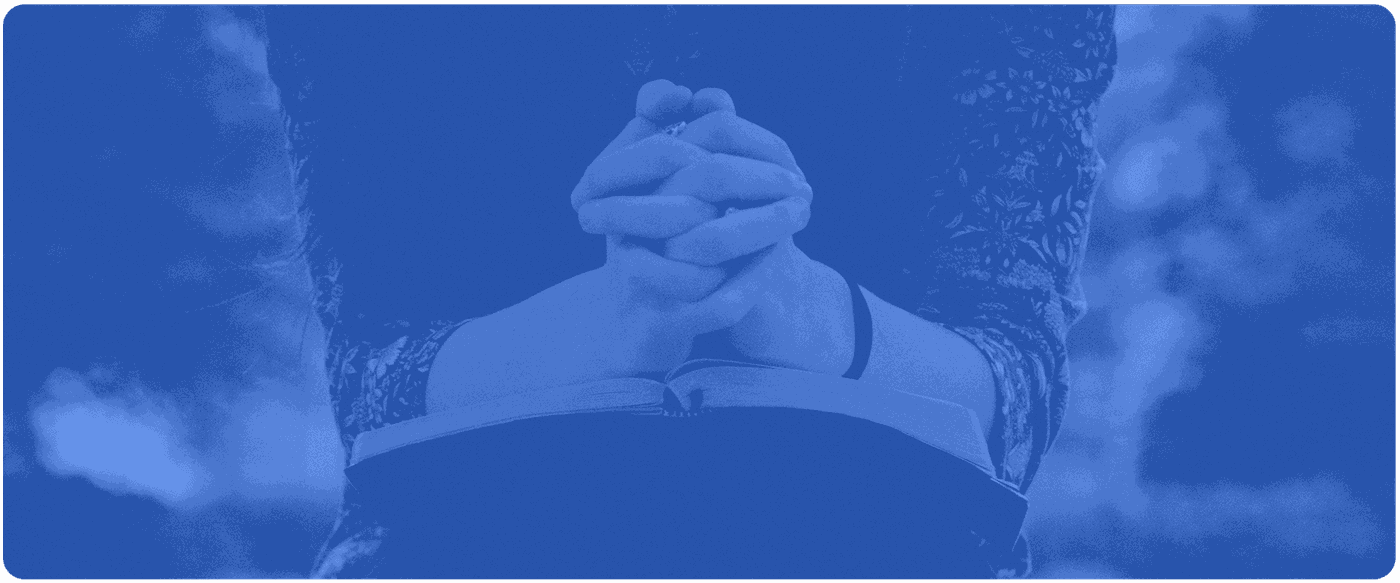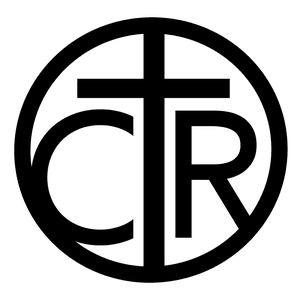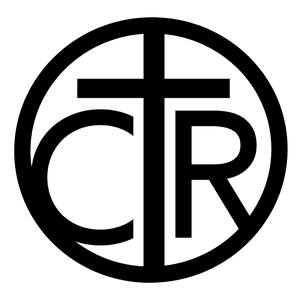In the sermon this week, we focused on Naomi and how God used her pain for a purpose. When we examine her life, we see that because of famine, because of death, because of grief, because of transition, both in marital status and geography, Naomi became the grandmother of Obed, who is the father of Jesse, who is the father of King David. Naomi is the story of an unlikely woman looking at herself and her God through the stained glass of her pain. If Naomi had the whole story while she was here on earth, she may have named herself Blessed instead of Bitter. God used an unlikely woman to be the great grandmother of King David, in the direct line of Jesus Christ, which means He can use us too.
In celebration of Mother’s Day, let’s look at the other unlikely women God uses in the Bible. Boaz – the man who married Naomi’s daughter-in-law Ruth, well his mother was Rahab, the prostitute (Matthew 1:5). You read that correctly, his mother was a prostitute. Pastor Dave reminds us that it is stories like these, where God uses someone with the occupation of a prostitute, to be in the direct lineage of His Son. That’s how we know the scriptures are God-breathed because if we were writing the stories, we may leave this part out. Rahab’s story is found woven through the scripture in Joshua 2-6. Rahab was a prostitute, and she was raised in a godless society, but because of her bravery and her recognition of the One True God, she is also an ancestor of Jesus. Rahab was the great great grandmother of King David and in the direct line of Jesus Christ. Is there a sin in your life that makes you think that God can’t use you? Let the story of Rahab remind you that God can do anything when you trust in Him.
What about the pivotal women in the life of Moses? The story of Moses begins in Exodus 2 where we read that his mother went against the government and saved Moses from death. Then, when she can protect him no longer, she puts him in the Nile River with absolutely no knowledge of what will happen to him. His sister, Miriam, watches baby Moses float down the river, where eventually, Pharaoh’s daughter – a pagan woman – had compassion on him and rescued him. Do you have any unbelieving women in your life? God uses them too. This pagan woman saves Moses, and Miriam gets her own mother to continue to care for him – and she’s PAID for it (Exodus 2:9)! Did you read that ladies, Moses’ mother was PAID to be his mother – HELLO goodness of God! Fast forward a few decades, and Moses is commissioned by God to lead the Israelites out of Egypt, but he wasn’t abiding by God’s law, and his wife steps in and saves him (Exodus 4:24-26). God used four different women in the life of Moses – a mother, a daughter (Pharaoh’s daughter), a sister, and a wife – so do not fear, He can use you too!
And what about Abigail? Her story is found in 1 Samuel 25. She was married to a godless man, likely stuck in a difficult, unequally yoked, childless marriage. Now she could have easily been a bitter woman. But despite Abigail’s pain and suffering, she risked her life by going against her husband’s wishes to help some traveling soldiers, which just so happened to include the future King of Israel, David. Abigail knew who God was, despite her godless husband and the pain of her marital strain. Abigail didn’t let her pain and disappointment shade her view of God. Because of her wisdom and bravery, God rescues Abigail from her situation and she eventually becomes King David’s second wife. When Abigail took that first step, she had no idea she’d be called out of her current situation, she just acted. Is God calling you to bravery? It’s not for nothing, even if you can’t see it yet.
 God isn’t done with you, as long as you have air in your lungs and a heartbeat in your chest, your story, and God’s, isn’t over.
God isn’t done with you, as long as you have air in your lungs and a heartbeat in your chest, your story, and God’s, isn’t over.Self-Reflection
- Pastor Dave says “God uses people in our healing journey” and sometimes they are unlikely people. Today I’d like for you to consider the unlikely men and women God has used in your life and thank God for them.
- Then ask yourself if you are an unlikely man/woman in someone’s life? Is someone looking up to you?
- Consider who is in your sphere of influence – God has given them to you. Priscilla Shirer says we are responsible for those God places in our sphere of influence, He has entrusted them to us (Gideon, 2013).
- Naomi’s heart had become synonymous with her brokenness and she was now identifying as bitter. Pastor Dave said, “she identified with her pain more than her purpose and her heart hadn’t caught up with her healing”.
- I would like to invite you today to consider what pain in your life you’ve identified with.
- Has your heart caught up with your healing?
- Is there a sin in your life that makes you think God can’t use you? Remember Rahab was STILL a prostitute when God used her. Pharaoh’s daughter was STILL a non-believing woman when she pulled Moses out of the Nile. With both stories, we see that God uses these women, despite their beliefs or their circumstances, and He looks at us the same way. So if you are in a season of pain, take some encouragement from these ladies – God isn’t done with you, as long as you have air in your lungs and a heartbeat in your chest, your story, and God’s, isn’t over.
Steps to Victory
- A couple of weeks ago, we focused on the impact of father wounds. Some of you may have been saying “well dad was ok, but wow, mom was rough”. The reality of our world is that we suffer both father and mother wounds, and sometimes, the mom wounds cut deep. Perhaps Mother’s Day is a rough day for you because you may not have the type of mom who deserves celebration. If this is you, remember, that God loves you and IF you want to be free from this wound, with His help, that unhealed mother wound can become a vessel through which God uses your pain for your freedom AND His purpose.
- Consider writing an unedited letter to your mother, say whatever needs to be said, and use whatever colorful language needs to be used. Give the unhealed part of yourself a voice.
- Once the letter is written, consider reading it to a safe and trusted person, someone who will not judge you or try and challenge your pain, but someone who will just listen and love you through your grief (yes, having an unhealthy mother is something to grieve).
- Then do something symbolic to give the painful words to God – release the letter in a balloon, burn it (safely, please), shred it, take it to her grave and read it aloud, do whatever needs to be done.
- God can use you no matter which phase of life you are in. From the life of Moses, we see that God uses terrified mothers, curious sisters, unbelieving daughters, and courageous wives. From the story of Naomi, we see that God also uses desolate widows and grieving parents. And from the story of Abigail, we see that someone’s marital issues are not a deterrent for the work of God.
- In the mental health world, “state-dependent memory” refers to memories retrieved when in a certain mood state. For example, when I am feeling depressed, I will typically only remember other times I’ve been depressed and I will have difficulty remembering times when I have felt good. The same concept can be applied to our spiritual lives in that if I look at God through the lens of pain, I will only remember more pain.
- If anger towards God is something you are dealing with, know that God can handle it, and it is normal to rage against the safest person in your life. Please also remember that you’re not going to be angry at someone who doesn’t exist – so your anger at Him signifies His presence in your life and the importance of that relationship.
- Talk to God. Yell at Him. Pray to Him. Communicate with Him in whatever way seems right to you. That is the pathway through the anger phase – give the thoughts and emotions a voice and express it to God. Just because God knows what’s hurting you and why doesn’t mean you don’t need to say it. Jesus knew His fate on the Cross, yet He still talked to God about it in the Garden of Gethsemane.
- We read in Naomi’s story that pain physically changes someone – Naomi didn’t even look the same. That’s what pain, especially grief, will do to you. Are you in a season of grief today? Has it changed your physical appearance, in addition to your heart? The good news is that you are normal! Everyone grieves differently, and we can glean some powerful lessons from Naomi’s grief.
- She didn’t hide it. Naomi was vocal about her pain with those around her; she did not bottle it up or try and deny her hurt.
- She didn’t deny being angry with God for being a childless widow. Anger is a necessary phase of grief. But folks, it’s only meant to be a phase, not a life sentence.
- Naomi didn’t stay stuck in her grief, she still allowed Ruth to love her, and she still used her wisdom to help Ruth in her own season of widowhood. Naomi, despite her grief, used her life wisdom to help someone else who was also struggling.
- Take a look at how God provided for Naomi through the seasons of her life. God provided Ruth, a daughter-in-law who would stay with her, He provided a new husband for Ruth and a grandson for Naomi to love. God blessed Naomi with a new season of her life. God was not bound by Naomi’s bitterness. “He restores my soul…” (Psalm 23:3). The same is true for us – God can restore our souls if we allow Him. Know that we have free will and we don’t have to allow God into those painful, broken, bitter places of our lives – but if we do, He won’t leave us the same way He found us ☺
-Lisa Lewis, LCPC


